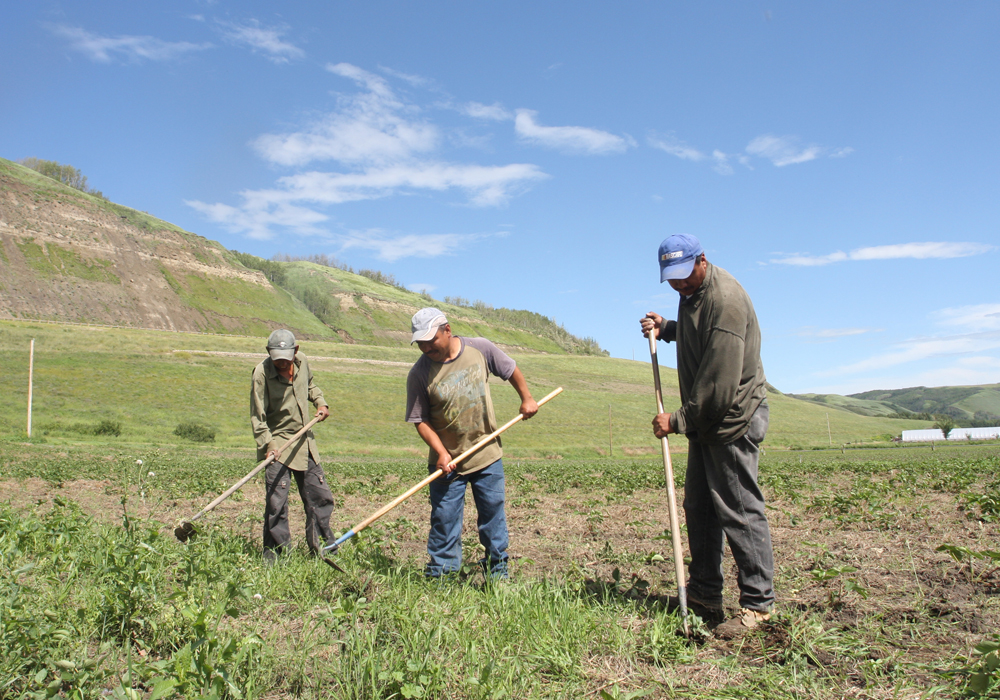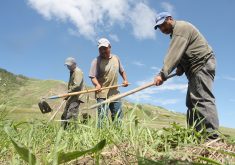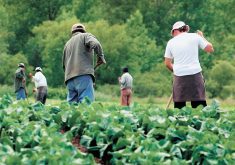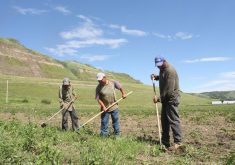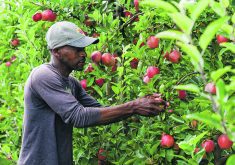Occupation-specific work permits proposed by the federal government concern the Agriculture Labour Task Force
OTTAWA — The notice in the Canada Gazette caught Mark Chambers, and others, off guard.
On June 21, the federal government gave notice in the official government publication of a 30-day consultation for possible changes to the Temporary Foreign Worker Program, including occupation-specific work permits.
Chambers, co-chair of the Agriculture Labour Task Force, said he was surprised the changes had already made it to the stage where they were ready for publication in the Gazette.
“We’ve been in communication with them for quite some time, back and forth on pros and cons with it and then we get the announcement on Friday,” he said in an interview at the AgriWorkforce Roundtable in Ottawa June 25. “It’s a little bit of a concern because it opens up just a whole myriad of issues with sectoral or occupation-specific work permits.”
Read Also

Farming Smarter receives financial boost from Alberta government for potato research
Farming Smarter near Lethbridge got a boost to its research equipment, thanks to the Alberta government’s increase in funding for research associations.
Immigration, Refugees and Citizenship Canada and Employment and Social Development Canada say they are considering the permits to “provide greater labour mobility to foreign workers, enabling them to leave their employer for a new one in their occupation, who is approved to hire foreign workers, without the requirement to apply for a new work permit.”
Foreign workers are restricted to work for only the employer specified on their work permits. They can change employers but need to get a new permit.
But Chambers said workers already have the ability to move to anyone with an approved Labour Market Impact Assessment. It’s the IRCC that sometimes doesn’t provide the new permits because it deems someone unqualified for a particular job.
The process takes time, which is the real problem that should be fixed, he said.
“If you’re coming in here as a general farm worker you can work on a mushroom farm, you can work on a grain farm, dairy farm, it’s a general farm worker so you can work on any farm even if you don’t have the experience,” he said. “We’re not really sure how it’s going to work with sectoral, occupation-specific permits.”
Temporary foreign workers make up about 17 percent of Canada’s agricultural workforce and more will be needed to keep the sector going and growing, the roundtable heard.
Todd Crawford, Conference Board of Canada economist, said farmers must have access to foreign worker streams particularly for key occupations because the Canadian agricultural workforce is aging, young people aren’t entering, and most urban people aren’t interested in moving to rural areas for jobs.
“At a minimum that will serve as a stop-gap so we’re not seeing this situation continue to get worse over time,” he said.
Chambers said unions and labour organizations are pushing the changes. The United Food and Commercial Workers has long called for open work permits.
He said the union’s goal is to have all foreign workers land as permanent residents, but that’s not necessarily what the workers want and not what the program is intended to do. Instead, it is to allow for temporary work, or a transition to permanent residency if the worker fits.
Chambers also said the industry was waiting for details of a three-year pilot program announced in the federal budget that would create a pathway to permanent residence for agricultural workers.
Baerbel Langner, director of immigration at the pork company Hylife, said agriculture definitely needs workers and they will have to come from other countries because Canadians don’t want jobs as butchers, for example. But they do benefit from the spin-off jobs created by the work of TFWs.
“It’s not just about bringing in foreign workers to do jobs that Canadians by and large are not interested in. It’s also taking that key piece that we’re bringing in foreign workers to provide more jobs for more Canadians. Let’s not lose sight of that,” she said.
Langner said companies are “scouring the bushes and looking under rocks” for people willing to work in rural Canada, and Canadians are the first choice if possible.
She said the proposed three-year pilot for the meat sector will hopefully fill 2,750 spots.
Some at the workshop said provincial nominee programs struggle with timely processing and that adds to the hiring problem.
Langner said a simple solution would be to go back to two-year LMIA work permits rather than one year.
Meanwhile, Ken Forth, president of Foreign Agricultural Resource Management Services and an Ontario broccoli farmer, said he doesn’t want to see any changes to the seasonal agricultural worker part of the bigger TFW program because it works well and has a lot of checks and balances.
He has brought seasonal workers to Canada for 50 years.




